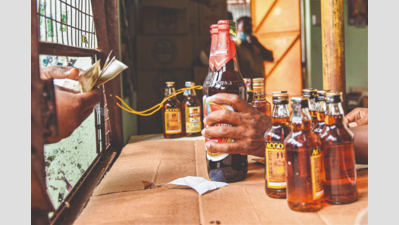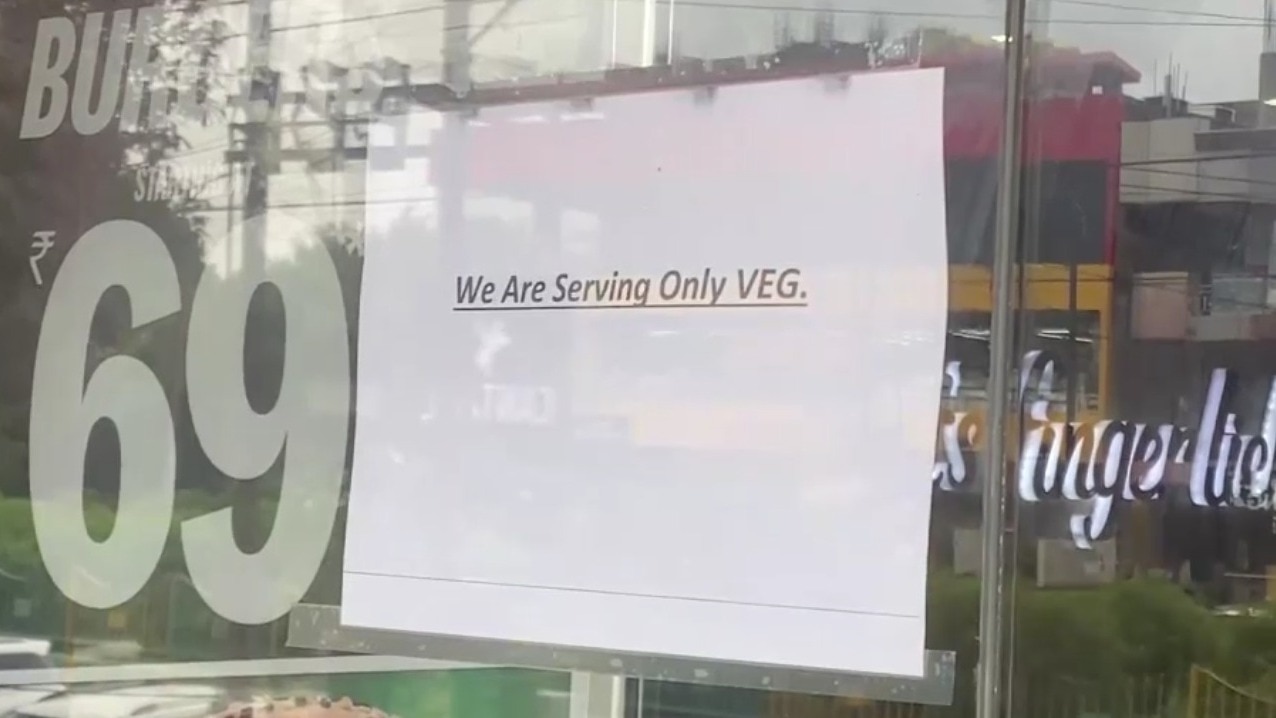ARTICLE AD BOX

TOBACCO Vs TASMAC: Tamil Nadu’s gutkha ban was upheld by courts under food safety laws, while alcohol regulation framed by state revenue interests
Srimathi Venkatachari
In Tamil Nadu, public health policy treads a morally ambiguous line between constitutional commitment and commercial convenience. The state, invoking Article 47 of the Constitution—mandating the govt to improve nutrition and public health and prohibit intoxicating substances — has banned gutka and pan masala citing cancer risks.
At the same time, it operates and profits from the largest govt-run liquor retail monopoly in India: Tasmac. With more than `44,000 crore in annual revenue, the contradiction is not just glaring —it’s institutional.This paradox reveals a deeper policy schizophrenia. On the one hand, the govt frames itself as a paternalistic guardian, shielding citizens from harmful substances. On the other, it plays bartender to the masses, peddling alcohol from every street corner, including those adjacent to schools, temples, and homes.
The result is a public health framework that outlaws cancer but subsidizes cirrhosis.
The 2013 ban on chewable tobacco was enforced under the Food Safety and Standards Act, 2006, a legislative tool designed to protect citizens from hazardous food items. The move received judicial backing. In Godawat Pan Masala Products Co. vs Union of India, the Supreme Court recognised the States’ autonomy under the Food Safety law to restrict or ban harmful substances.
Madras High Court, in Rathinam Enterprises vs State of Tamil Nadu, (2025) went further, approving the selective ban on processed tobacco while permitting the sale of raw tobacco leaves.Contrast this with the legal regime for alcohol. Here, Tamil Nadu enjoys a golden goose thanks to Entry 8 of the state list in the Constitution. It grants states the sole authority to regulate alcohol production, distribution and sale.
As a result, the same govt that brands gutka a public enemy becomes a benevolent supplier of alcohol. Public health, in this calculus, bends easily to revenue imperatives.Legally, the state walks a careful line, but the cracks are evident. In state of Tamil Nadu vs K Balu (2017) the Supreme Court upheld state-imposed curbs on liquor sales, especially near national highways, affirming the govt’s power to regulate in the public interest.
Yet, public interest becomes an elastic term when liquor shops mysteriously reappear just meters from their original locations after “relocation”.Citizens see through this charade. A Tasmac outlet may comply with zoning laws on paper while operating adjacent to residential zones in practice. Alcoholism, domestic violence and road fatalities climb, but liquor counters stay open, often with police protection.
The result is what might be termed “constitutional tokenism”: the use of selective bans to appear health-conscious while running a vast, state-sponsored liquor empire.
This satisfies constitutional formalities under the doctrine of “reasonable classification” but fails the test of equity, ethics and lived experience.The social cost of alcohol consumption in Tamil Nadu is immense. Studies link it to rising domestic violence, workplace absenteeism, school dropouts and road accidents.
Women’s groups routinely protest Tasmac shops that operate in close proximity to homes, citing increased insecurity and disruption of family life. Many of these protests are met with silence or police force.Meanwhile, the fiscal reliance on liquor revenue makes meaningful reform nearly impossible. In some districts, revenue from Tasmac outstrips allocations for education and public health. The irony is cruel: schools go underfunded while liquor outlets enjoy round-the-clock supply chains.What makes this even more concerning is the regressive nature of this taxation. The poorest — daily-wage workers and labourers — spend disproportionately more on alcohol, while the state grows dependent on their addiction to meet budgetary targets.The paradox sharpens further when one looks at class. Elite society indulges alcohol in private clubs and gated communities, often with imported spirits and minimal state scrutiny.
For the working class, Tasmac is the only accessible vendor, public, noisy, often unsafe. The state’s liquor policy therefore not only sustains addiction, it stratifies it. The poor buy what the state sells; the rich import what the state ignores.There is no easy solution. Prohibition is neither feasible nor desirable, as Gujarat’s failed experiment shows. But surely there is a middle path, one that involves decentralising liquor retail, investing in de-addiction centres, raising awareness about substance abuse, and capping the density of outlets in urban and rural areas.Most importantly, the state must confront its moral conflict: it cannot pose as a public health crusader while acting as the chief purveyor of addiction. Tamil Nadu’s policymakers must ask themselves a basic question. Should the health of its people depend on the sale of what ails them?(The writer is an advocate in the Madras high court)Email your feedback with name and address to [email protected]YOU MAY BE INTERESTED: Tamil Nadu intensifies tobacco ban near schools



.png)
.png)
.png)
















 3 hours ago
6
3 hours ago
6








 English (US) ·
English (US) ·